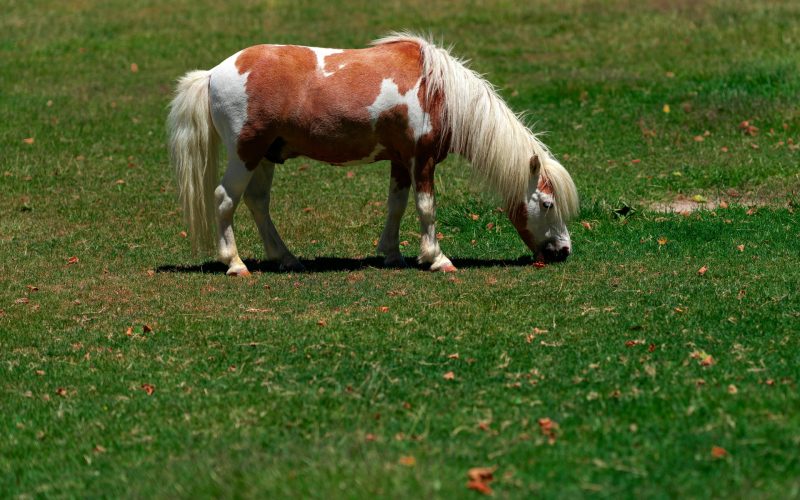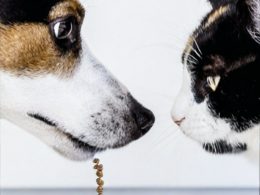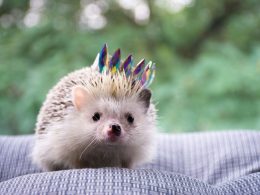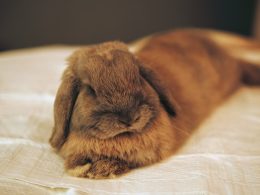Are you an equine enthusiast looking for a unique and adorable companion? Consider bringing a miniature horse into your life as a house pet! These delightful creatures are charming and can serve as service animals, providing invaluable assistance to those in need. This article explores the world of miniature horses, their suitability as house pets, and the necessary considerations for their care.
Keeping an Adorable Miniature House House Pet
Miniature horses, often called “mini horses,” are a distinct breed renowned for their small stature and gentle nature. Despite their diminutive size, these equines are full-fledged horses, not ponies. Their endearing features and affectionate personalities have captured the hearts of many animal lovers worldwide. Whether you’re seeking a unique companion or a service animal, miniature horses might be the perfect fit for your household.
What is a Miniature Horse?
Miniature horses are a distinct breed of equine that stands between 34 and 38 inches in height at the withers (the ridge between the shoulder blades). Despite their small size, they are considered actual horses, not ponies. These amazing animals have been around since the 1600s and were initially bred for their strength and versatility in coal mines and other industrial settings.
Miniature horses are stocky and well-proportioned, with short legs and a compact body. They come in various colors and patterns, making each unique and charming. While their small size is their most distinguishing feature, miniature horses share many traits with their full-sized counterparts, such as intelligence, trainability, and a strong herd mentality.
Why Keep a Miniature Horse as a House Pet?
Miniature horses make excellent house pets for several reasons. First and foremost, their small size makes it easier for them to accommodate in a residential setting. They require less space than full-sized horses, making them a viable option for those with limited acreage or backyard pastures.
Miniature horses are known for their gentle and affectionate nature, making them ideal companions for families with children or individuals looking for a unique and interactive pet. Their intelligence and trainability make them easy to housetrain, just like dogs or other domestic animals.
Are Miniature Horses Good Service Animals?
Absolutely! Miniature horses are increasingly recognized as service animals, providing invaluable assistance to individuals with disabilities. They can be trained as guide animals, mobility assistants, or emotional support animals for the visually impaired. Their calm temperament, intelligence, and willingness to work make them well-suited for these roles.
Miniature horses as service creatures offer several advantages over larger breeds. Their small size allows them to navigate tight spaces more efficiently and require less living space and resources. Additionally, their gentle nature can comfort individuals with anxiety or other emotional needs.
The American Miniature Horse Breed
The American Miniature Horse is a distinct breed recognized by the American Miniature Horse Association (AMHA). To be considered part of the breed, these horses must measure between 34 and 38 inches in height at the withers. They are known for their well-proportioned bodies, gentle dispositions, and various coat colors and patterns.
Choosing a reputable breeder is crucial when acquiring an American Miniature Horse. Responsible breeders prioritize the breed’s health, temperament, and adherence to the AMHA standards. This ensures you receive a well-bred miniature horse with the desired traits and characteristics.
Miniature Horse Care: What You Need to Know
While miniature horses are smaller than their full-sized counterparts, they require proper care and attention. Here are some essential considerations:
- Housing: Miniature horses need adequate space to move around, graze, and socialize. A small pasture or paddock area and a barn or shelter are ideal for protection from the elements.
- Nutrition: Like other horses, miniature horses require a balanced diet of hay, grains, and freshwater. It’s essential to monitor their intake and avoid overfeeding, as they are prone to obesity and related health issues.
- Hoof care: Regular hoof trimming by a qualified farrier is crucial for maintaining proper hoof health and preventing lameness or other issues.
- Dental care: Miniature horses’ teeth should be checked and maintained regularly by an equine veterinarian or qualified dental technician.
- Veterinary care: Regular check-ups, vaccinations, and deworming are essential for maintaining your miniature horse’s overall health and well-being.
- Exercise and socialization: Miniature horses are herd animals and thrive on companionship and regular exercise. Giving them opportunities to run, play, and interact with other horses or equine-friendly pets is essential for their mental and physical well-being.
Is a Miniature Horse the Right Pet for You?
Assessing your lifestyle, living situation, and commitment level is essential before considering a miniature horse as a pet. While these little horses are adorable and relatively low-maintenance compared to full-sized horses, they still require significant time, resources, and responsibility.
Miniature horses require daily care, including feeding, grooming, and exercise. They also need adequate living space, such as a small pasture or paddock area, and a barn or shelter for protection. Additionally, regular veterinary care, hoof trimming, and dental maintenance are essential for their health and well-being.
If you have the time, space, and commitment to properly care for a miniature horse, it can make a wonderful and rewarding companion. However, if your lifestyle or living situation is not conducive to owning a large animal, it’s best to consider a smaller, more traditional house pet.
Housing Requirements for Miniature Horses
While miniature horses are smaller than full-sized, they still require adequate living space and housing. Here are some essential housing considerations:
- Pasture or paddock: Miniature horses need access to a secure outdoor area for grazing, exercise, and socialization. A small pasture or paddock area with appropriate fencing is ideal.
- Barn or shelter: A barn or run-in shed is necessary to protect from rain, wind, and extreme temperatures. It should be well-ventilated and offer enough space for the horse(s) to move around comfortably.
- Stabling: If you plan to keep your miniature horse primarily in a stable or stall, it should be large enough for the horse to lie down, turn around, and move freely. Proper bedding, such as straw or shavings, is also essential.
- Companion animals: Since miniature horses are herd animals, it’s best to provide them with a compatible companion, whether another miniature horse, a pony, or a horse-friendly pet like a goat or donkey.
- Fencing: The fencing for your pasture or paddock should be sturdy, safe, and designed specifically for horses. Standard options include wood, vinyl, or non-climb wire mesh fencing.
Remember, miniature horses still require ample space for exercise, socialization, and overall well-being, even though their living requirements are smaller than those of full-sized horses.
Feeding and Nutrition for Mini Horses
Proper nutrition is essential for the health and well-being of miniature horses. Here are some important considerations:
- Hay: High-quality hay should comprise most of a miniature horse’s diet. Grass hay, such as timothy orchard grass, is a good choice, but consult an equine nutritionist or veterinarian for specific recommendations based on your horse’s age, weight, and activity level.
- Concentrate feed: Besides hay, miniature horses may require a small amount of concentrate feed (grain) to meet their nutritional needs. A professional should determine the amount and type of feed and adjust it based on the horse’s weight, age, and activity level.
- Fresh water: Miniature horses, like their full-sized counterparts, need constant access to clean, fresh water.
- Supplements: Your veterinarian or equine nutritionist may recommend supplements such as vitamins, minerals, or probiotics based on your horse’s individual needs.
- Grazing: If you have a pasture or paddock area, allowing your miniature horse to graze on fresh grass can provide valuable nutrition
Here are the remaining sections for the blog post on keeping a miniature horse as a house pet:
Grooming and Health Care for Your Miniature Horse
Proper grooming and health care are essential for maintaining the well-being of your miniature horse companion. Here are some important considerations:
- Grooming: Regular grooming is necessary to keep your miniature horse’s coat healthy and free of dirt, debris, and tangles. This includes brushing, mane and tail care, and hoof picking.
- Hoof care: Like all horses, miniature horses require regular hoof trimming by a qualified farrier. Overgrown or poorly maintained hooves can lead to lameness and other issues.
- Dental care: An equine veterinarian or qualified dental technician should regularly check and maintain your miniature horse’s teeth. Proper dental care helps prevent issues with chewing and digestion.
- Vaccinations: Consult with your veterinarian to determine the appropriate vaccination schedule for your miniature horse based on your location and potential exposure risks.
- Deworming: Regular deworming is crucial to maintain your miniature horse’s internal health and prevent parasitic infestations.
- Veterinary check-ups: Regular check-ups with an experienced equine veterinarian are recommended to monitor your miniature horse’s overall health and address any potential issues early on.
- Hoof and leg care: Miniature horses are prone to certain health conditions, such as laminitis and dwarfism-related issues, which require special care and attention to their hooves and legs.
By staying on top of grooming and health care, you can ensure that your miniature horse companion remains happy, healthy, and comfortable throughout their life.
Training and Bonding with Your Miniature Horse Companion
Training and building a strong bond with your miniature horse can be a rewarding experience for you and your equine companion. Here are some tips:
- Start early: Begin training your miniature horse from a young age to establish good habits and a strong foundation for learning.
- Use positive reinforcement: Miniature horses respond well to positive reinforcement techniques, such as treats, praise, and gentle handling. Avoid harsh methods or punishment, as they can create fear and mistrust.
- Socialize and desensitize: Exposing your miniature horse to different environments, sounds, and situations early can help them become more confident and well-adjusted.
- Establish a routine: Miniature horses thrive on routine and consistency. Develop a regular feeding, grooming, and training schedule to create a sense of security and predictability.
- Spend quality time: Bonding with your miniature horse requires dedicated time and attention. Engage in activities together, such as hand-walking, grooming, or simply spending time in the pasture or paddock.
- Consider professional training: If you’re new to horse ownership or facing specific behavioral challenges, consider seeking guidance from a professional horse trainer specializing in miniature horses.
- Investing time and effort into training and bonding with your miniature horse can establish a trusting relationship that will enrich your life.
Keeping a miniature horse as a house pet can be a rewarding and unique experience for equine enthusiasts and animal lovers. While these adorable creatures require proper care, housing, and significant commitment, their gentle nature, intelligence, and affectionate personalities make them excellent companions. Understanding their needs and providing a suitable environment allows you to enjoy the joy and companionship of owning a miniature horse for years.
Remember:
- Miniature horses are a distinct breed, not ponies, standing between 34 and 38 inches tall.
- They make excellent house pets due to their small size, gentle nature, and trainability.
- Miniature horses can also serve as valuable service animals, assisting individuals with disabilities.
- Proper housing, nutrition, grooming, and veterinary care are essential for their well-being.
- Training and bonding with your miniature horse can create a robust and rewarding relationship.
- Assess your lifestyle and commitment level before acquiring a miniature horse to ensure you can provide the necessary care.
Q: What are miniature horses?
A: Miniature horses, which measure 34 to 38 inches, are small in size but have all the characteristics of full-sized horses.
Q: Why do mini horses make great service animals?
A: Miniature horses are also recognized as service animals due to their gentle nature, intelligence, and ability to be trained for various tasks.
Q: Are miniature horses suitable as pets?
A: Yes, miniature horses make wonderful pets for those looking for a companion animal that is smaller in size yet still has the qualities of a larger horse.
Q: How do miniature horses compare to ponies?
A: While miniature horses and ponies both have small statures, miniature horses tend to be more refined in appearance and are often kept as pets or service animals.
Q: What is the right environment for a miniature horse?
A: Miniature horses require adequate space, proper shelter, and regular upkeep to ensure they live a happy and healthy life.
Q: Can miniature horses be companions to other animals?
A: Miniature horses can be great companions to other animals, providing friendship and social interaction for both the horse and its fellow companions.
Q: Why should I consider a miniature horse as a pet?
A: Most owners choose miniature horses as pets due to their manageable size, lovable personalities, and the joy they bring to their owners’ lives.
Some FAQs about
What breed are miniature horses considered?
Many also recognize miniature horses—which measure 34 to 38 inches in height—as a distinct breed of equine, not ponies. They are true horses, just smaller in stature.
Can miniature horses be kept as house pets?
Yes, mini horses make excellent house pets for those looking for a companion animal. According to Texas A&M University, “Most owners choose to keep these little guys as pets rather than for riding.”
How do I keep a miniature horse as a pet?
“Miniature horses require proper housing, nutrition, and upkeep,” says a clinical assistant professor. Provide a barn or shelter, pasture area, and meet their dietary needs. The housing requirements are consistent with larger horses but on a smaller scale.
Can miniature horses serve as service animals?
Absolutely! Miniature horses as service animals are becoming more common. Their small size, trainability, and calm nature make them well-suited as guide animals, mobility assistance animals, or therapy animals.
What’s the difference between a miniature horse and a pony?
The main difference is size. Miniature horses measure 34 to 38 inches at the withers, while most ponies are taller than 34 inches. Ponies are also a separate breed from horses.
Why do horses make good house pets?
Horses, including miniature horses, can make good house pets for animal lovers with adequate space and the level of commitment required. They are intelligent, affectionate, and can form strong bonds with their owners.
What makes mini horses such great companions?
Mini horses make excellent companions due to their gentle nature, trainability, and ability to form strong bonds with their owners. They are easy to train and can be housetrained like other domestic animals.
Is a miniature horse a good pet for my family?
A miniature horse can be a good pet for families with the necessary space, time, and resources to provide proper care. However, it’s important to consider the responsibility of caring for a large animal like a horse, even if it is miniature in size.
What kind of care does a miniature horse require?
Miniature horse care provides adequate housing (pasture/paddock and shelter), proper nutrition (hay, grain, and freshwater), regular grooming, hoof care, dental care, vaccinations, deworming, and veterinary check-ups. Their needs are similar to full-size horses, just on a smaller scale.










